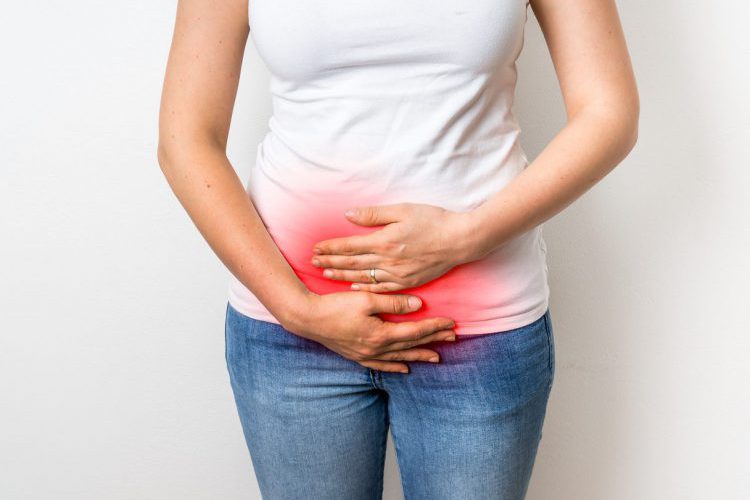Endometriosis, or “endo,” is a condition where tissue that makes up your uterine lining (known as the endometrium) is located outside of the uterus. When this happens, this tissue is usually is found on:
- Ovaries and/or fallopian tubes
- Tissues that line your pelvis
- Bladder or intestines
The condition affects 10% of anyone who gets a period, but is most commonly diagnosed in individuals who are in their 30s and 40s. Unfortunately, there are often lengthy delays before a proper endometriosis diagnosis is received due to hesitancy on the patient’s behalf to share their symptoms and doctors who normalize or dismiss the patient’s symptoms. The only way to diagnose endometriosis is by performing a surgical procedure called a laparoscopy.
Endometriosis can cause a range of symptoms and having the right diagnosis is the first step in getting it under control. Here are the most common endometriosis symptoms to be aware of.
Pain
The most common symptom you may have is pain, but where this pain is located can vary, depending on several factors. You might experience:
- Pain in your pelvis, which affects about 75% of those with endometriosis
- Painful cramping during your period, which over time can get more intense
- Pain in your low back, especially during your period
- Pain when you urinate or have a bowel movement
- Pain during intercourse
You may not have any pain with endometriosis, or you could experience very mild pain. However, having more pain doesn’t necessarily mean you have severe endometriosis.
Heavy bleeding or spotting
Along with having painful periods, you may have heavy bleeding during periods or spotting in-between cycles. If you experience heavy bleeding, you might be changing a pad or tampon every 1 to 2 hours.
The average period lasts 3 to 5 days, but when you have endometriosis, you may also have periods that last longer than 7 days.
It’s important to talk with your provider if you have heavy periods, the symptoms of endometriosis can appear similar to other conditions.
Infertility
About half of people diagnosed with endometriosis experience infertility, or difficulty conceiving. Fertility can be affected for a variety of reasons. These can include:
- Adhesions: bands of scar tissue that cause organs and tissues to stick to one another
- A “misshapen” pelvis from scar tissue pulling tissues out of place
- Inflammation
- Immune system imbalances
- Decreased quality of eggs
- An embryo not implanting correctly
Digestive concerns
You might experience digestive symptoms if you have endometriosis. Some symptoms might be:
- Diarrhea
- Constipation
- Bloating
- Nausea
These symptoms happen most often around the time of your period. There could be several reasons for your symptoms. The adhesions themselves could cause diarrhea, constipation or pain if they’re located on your bowel. Another thought is the body’s inflammatory response can cause digestive issues. There also may be a link between endometriosis and irritable bowel syndrome (IBS).
If you’ve been experiencing any or a combination of these symptoms, we recommend speaking with an ob-gyn or fertility specialist about endometriosis. Your doctor will want to ask you further questions about your health and you may have testing to see if you have endometriosis.
The good news is there are treatment options available to get pregnant when you have endometriosis. Make an appointment with one of our CCRM Fertility specialists today to discuss your options.


